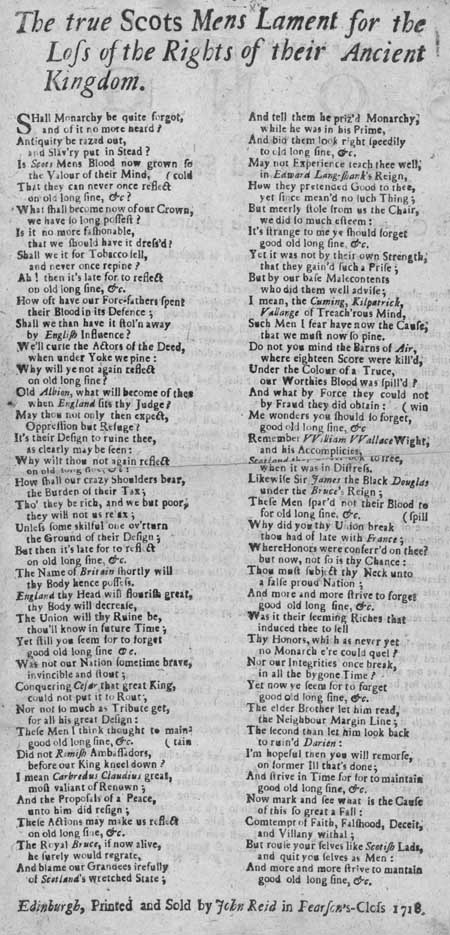Commentary
This ballad begins: 'Shall Monarchy be quite forgot, / and of it no more heard? / Antiquity be razed out, / and Slav'ry put in Stead?' This was published by John Reid, of Pearson's Close Edinburgh, in 1718. The first eight lines of this ballad also feature as a verse in the popular Scots song 'Auld Lang Syne'. There are many versions of 'Auld Lang Syne' and most poets during the sixteenth and seventeenth centuries wrote their own version of it. The origin of the tune is also obscured by the oral culture in which it is embedded. As a result it is a little difficult to give this poem, with its negative extension on the loss of Scottish Independence, any concrete context. Early ballads were dramatic or humorous narrative songs derived from folk culture that predated printing. Originally perpetuated by word of mouth, many ballads survive because they were recorded on broadsides. Musical notation was rarely printed, as tunes were usually established favourites. The term 'ballad' eventually applied more broadly to any kind of topical or popular verse.
View Transcription | Download PDF Facsimile
|
 |
Date of publication:
1718 shelfmark: Ry.III.a.10(117)
 View larger image
View larger image
|


